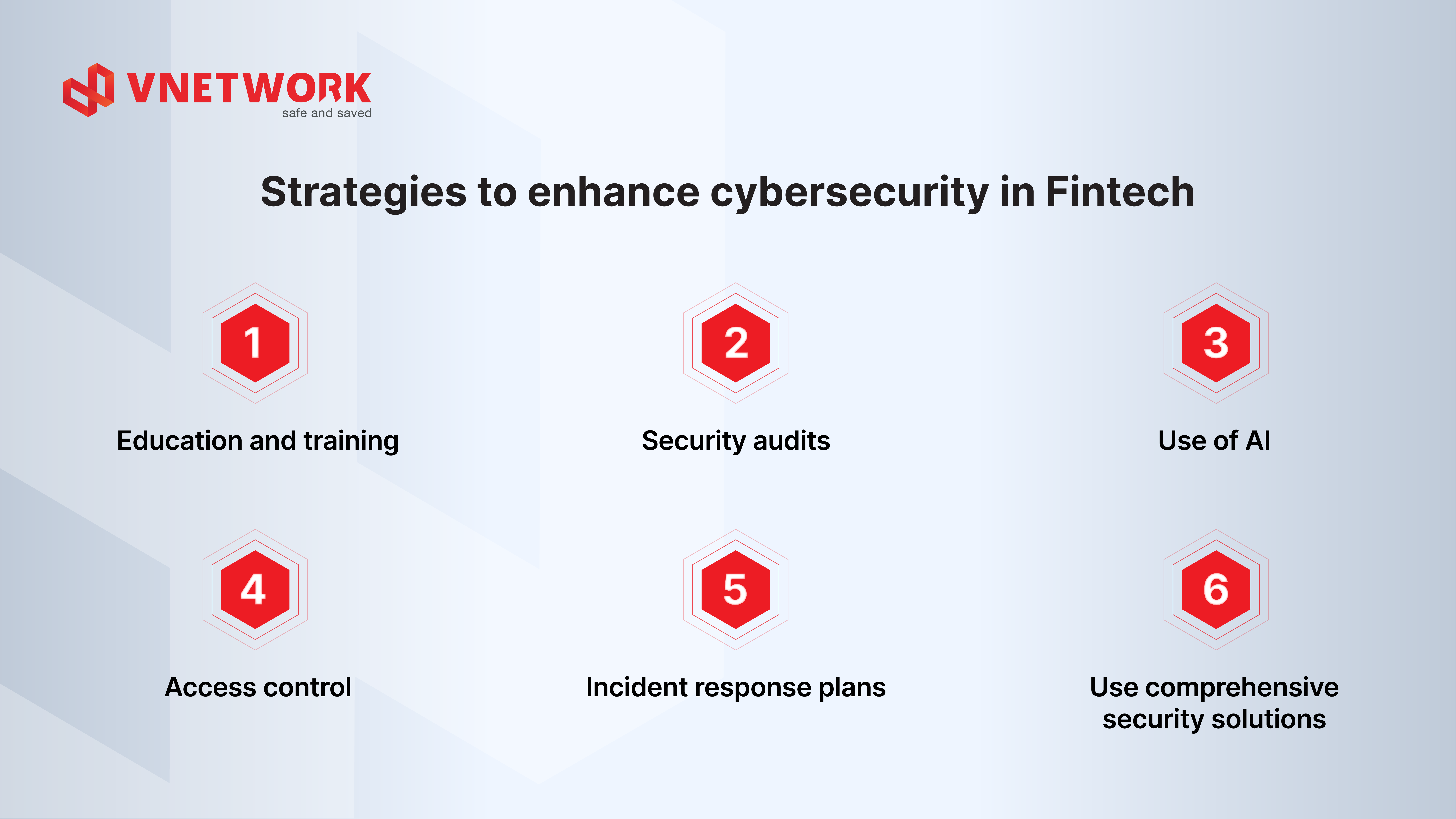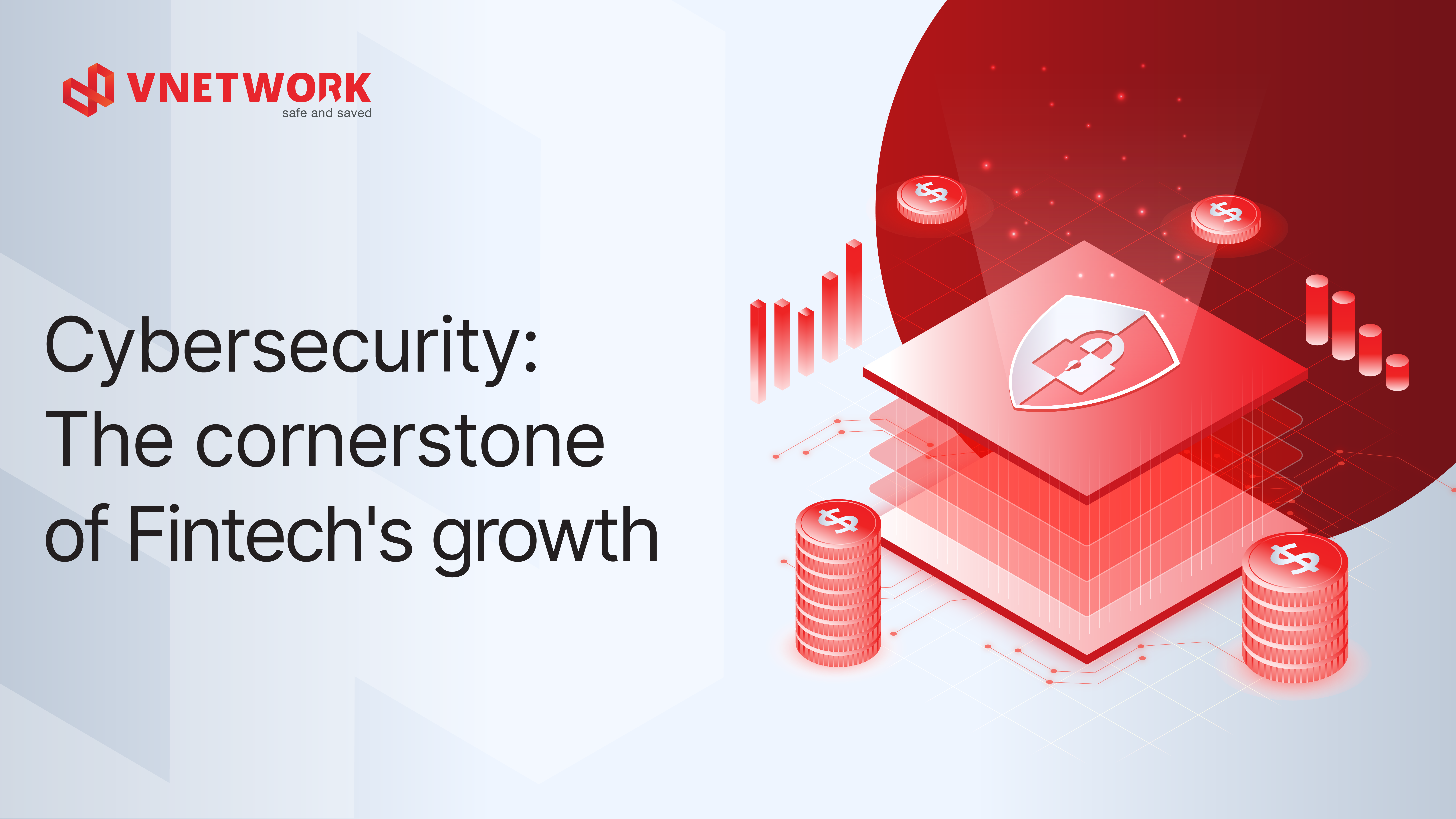Impact of cyberattacks on Fintech companies
The number of cyberattacks is increasing with higher sophistication, causing severe damages not only to business operations but also exposing sensitive information and data of enterprises, directly affecting their reputation and brand image. This article will delve into the challenges and risks that Fintech companies are currently facing in this context.
According to the report at MWC 2025, the number of banking trojan malware attacks on smartphones surged by 196% in 2024, with over 1.24 million attacks recorded on Android devices alone. Fintech companies and banks have become primary targets, as cybercriminals increasingly deploy sophisticated trojans such as Fakemoney and Triada to steal login credentials for online banking accounts, electronic payment services, and credit cards.
Instead of distributing multiple types of malware, attackers are adopting more advanced tactics, such as embedding trojans in popular applications or spreading them via phishing emails and text messages to trick users into downloading them. This not only poses a serious threat to financial security systems but also erodes customer trust in digital banking and Fintech services.
Cyberattacks pose significant challenges for Fintech companies, having a multidimensional and far-reaching impact on their business operations.
1. Direct impact on core business operations
- Disruption of payment and transfer operations: Cyberattacks can cripple payment systems, causing severe disruptions to financial transactions, facilitating fraud, and money laundering activities. This not only affects customer experience but also threatens the stability of the entire financial system.
- Service interruptions: Service interruptions caused by cyberattacks significantly affect users' access to financial services, especially those without bank accounts or in areas with underdeveloped technology infrastructure.
2. Impact on trust and reputation
- Decline in customer trust: Theft of personal and financial data, along with security incidents, erodes customer trust in the security and reliability of Fintech services.
- Loss of reputation and competitive edge: Security breaches can lead to serious legal consequences, damaging the company's reputation and affecting its competitive edge in the market.
3. Financial impact
- Financial losses: Fintech companies may face substantial financial losses due to cyberattacks, including theft of funds from customers or the companies themselves.
- Remediation costs: The costs of remediating the aftermath of cyberattacks, including investigation, system repair, and customer compensation, can put significant pressure on the company's financial standing.
- Increased cybersecurity costs: To combat increasingly sophisticated cyber threats, Fintech companies need to invest heavily in security solutions, raising operational costs.
4. Legal risks
- Regulatory violations: Cyberattacks can lead to violations of data security regulations, resulting in fines and other penalties.
- Litigation: Fintech companies may face lawsuits from customers or stakeholders due to damages caused by cyberattacks.
5. Other impacts
- Loss of government trust: Regulatory bodies may become more cautious in collaborating with or licensing Fintech companies if they cannot demonstrate their ability to ensure cybersecurity.
- Financial market instability: Large-scale cyberattacks on Fintech companies can negatively impact the financial market, reducing investor confidence and undermining financial system stability.
In summary, cyberattacks not only cause direct financial losses and business disruptions but also threaten the reputation, competitiveness, and sustainable development of Fintech companies. Therefore, investing in security measures and complying with cybersecurity regulations is crucial for the success of companies in this field.
Cybersecurity challenges faced by Fintech companies today
In the context of continuous technological development, Fintech companies face numerous cybersecurity challenges, necessitating urgent measures to protect users' sensitive financial information.
1. Diversity and sophistication of attacks
- Multi-layered attacks: Cyberattacks are no longer isolated but often a complex combination of various techniques, from phishing for login credentials to using malware to infiltrate and take control of systems.
- Distributed denial of service (DDoS) attacks: DDoS attacks aim to overload systems, disrupting the operations of Fintech services, leading to financial and reputational damages.
2. Challenges in Protecting Sensitive Data
- Attractive target: Financial data of customers and companies is always a top target for hackers. Protecting this data requires strict encryption and security measures during transmission and storage.
- Regulatory compliance: Fintech companies face pressure to comply with data security regulations such as GDPR and PCI DSS, requiring significant investment in time and resources.
3. Risks from Rapid Technological Development
- New technologies: The widespread adoption of new technologies like blockchain, artificial intelligence (AI), machine learning, and cloud computing brings many benefits but also creates new security vulnerabilities that need to be addressed.
- Internet of Things (IoT): The increase in connected devices in the financial sector, such as POS machines, smart cards, and mobile payment devices, expands the attack surface and creates many potential weak points for cyberattacks.
In conclusion, Fintech companies operate in a highly challenging cybersecurity environment. Effectively addressing these challenges requires continuous investment in advanced security measures, raising cybersecurity awareness among employees, and strict compliance with legal regulations.
Strategies for enhancing cybersecurity for Fintech companies
To counter increasingly sophisticated and large-scale cyberattacks, Fintech companies need to implement a comprehensive cybersecurity strategy, including technical, organizational, and management measures to protect sensitive information, minimize risks, and ensure business continuity.

1. Raising awareness and capacity
Conduct regular cybersecurity training programs for all employees, from management to new hires. The training programs should update knowledge about the latest threats, prevention methods, and how to respond to incidents. Additionally, companies need to provide specialized training on specific cybersecurity issues in the Fintech sector, including protecting financial data, preventing fraud, and complying with relevant legal regulations.
2. Security testing and assessment
- Regular testing: Conduct regular cybersecurity tests, including vulnerability assessments, risk evaluations, and system resilience checks. This helps to detect and address weaknesses in the security system early.
- Independent audits: Utilize independent security audit services from reputable experts to gain an objective and comprehensive assessment of the company's security level, and provide specific improvement recommendations.
3. Adoption of advanced technologies
- Artificial intelligence (AI) and machine learning: Leverage the power of AI and machine learning to automatically detect and prevent cybersecurity threats, analyze user behavior, and predict potential attacks.
- Log monitoring and analysis: Use log monitoring and analysis tools to track system activities, detect abnormal signs, and provide early warnings about attacks.
4. Strict Access Control
- Access privileges: Establish a strict access control system based on the principle of "least privilege," ensuring that only authorized personnel have access to critical data and systems.
- Multi-factor authentication (MFA): Implement multi-factor authentication to enhance security for login processes and access to sensitive resources.
5. Incident response planning
- Detailed plan: Develop a detailed incident response plan, including handling procedures, responsibility assignments, and steps to minimize damages in case of a security incident.
- Drills and simulations: Regularly organize drills and simulations to ensure that all members of the organization understand their roles and can respond quickly and effectively in the event of an incident.
VNIS - A reliable security solution for Fintech companies
To assist Fintech companies in preventing and mitigating increasingly large-scale and sophisticated cybersecurity attacks, VNETWORK Corporation has introduced the VNIS (VNETWORK Internet Security) solution - providing comprehensive security for Web/App/API.
 Comprehensive security model of VNIS
Comprehensive security model of VNIS
Accordingly, VNIS helps protect the enterprise's system with:
Robust global infrastructure
With over 2,300 connection points globally, our VNIS solution provides traffic handling capabilities up to 2,600 Tbps, ensuring that the enterprise's website remains reliably operational, even under cyberattacks.
Advanced technology application
The VNIS platform is equipped with Multi WAF, with numerous Cloud WAF clusters worldwide, ready to leverage dense Cloud infrastructure to quickly isolate threats during traffic surges. Accompanied by the WAF network monitoring system (Scrubbing Center), it coordinates activities of Cloud WAF clusters in multiple countries, effectively mitigating Layer 7 DDoS attacks.
By harnessing the development of AI, VNETWORK has built an AI Load Balancing system combined with Real User Monitoring (RUM), capable of detailed analysis of attack sources, reporting real user interactions with websites to direct traffic optimally. The AI Load Balancing system, combined with CDN, uses RUM and Synthetic Monitoring to automatically detect the shortest path between the server and the user and routes traffic optimally.
Additionally, the AI Load Balancing system allows load balancing across multiple servers with options: IP hash, round-robin, or failover.
Comprehensive System Monitoring
The 24/7/365 continuous monitoring system continuously updates the enterprise's system status and automatically sends early warnings when attacks occur, helping the enterprise understand the type of attack happening and choose an appropriate response.
24/7 SOC Expert Support
Understanding the urgency and timeliness in security, VNETWORK has established Security Operation Centers (SOC) ready to combat emergency situations to minimize losses. The SOC team is present in Vietnam, Hong Kong, Taiwan, Singapore, and the UK, ready to support and combat alongside enterprises against any attack.
Conclusion
Amid the increasingly complex development of cyberattacks in both form and scale, selecting an appropriate security solution is crucial for Fintech companies, directly affecting the safety and stability of their systems, as well as user experience and business operations.
The VNIS platform is a comprehensive and effective security solution, providing the necessary support for enterprises to protect their websites, applications, and APIs from all attack risks. For detailed information and quotes, please contact us via hotline: +84 (028) 7306 8789 or email: contact@vnetwork.vn.
